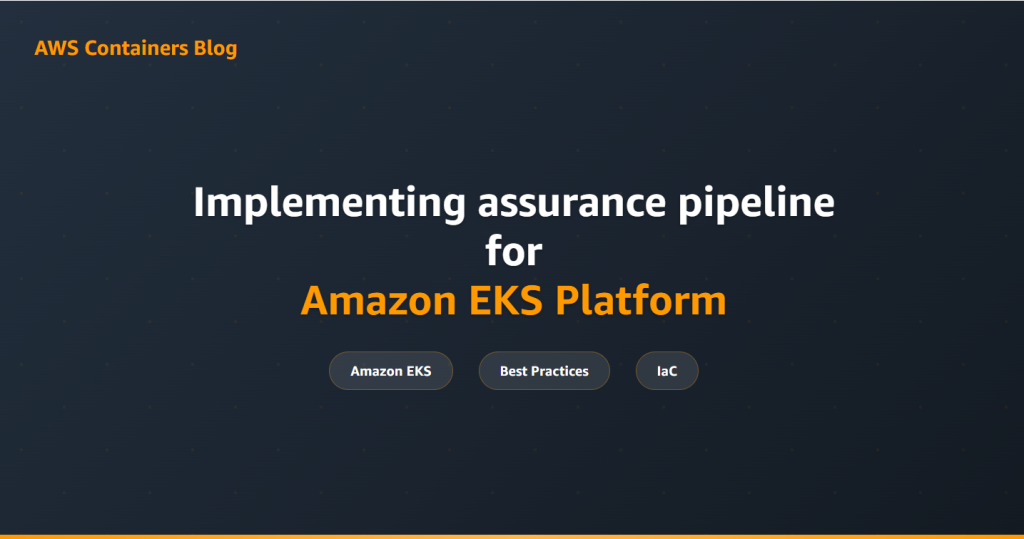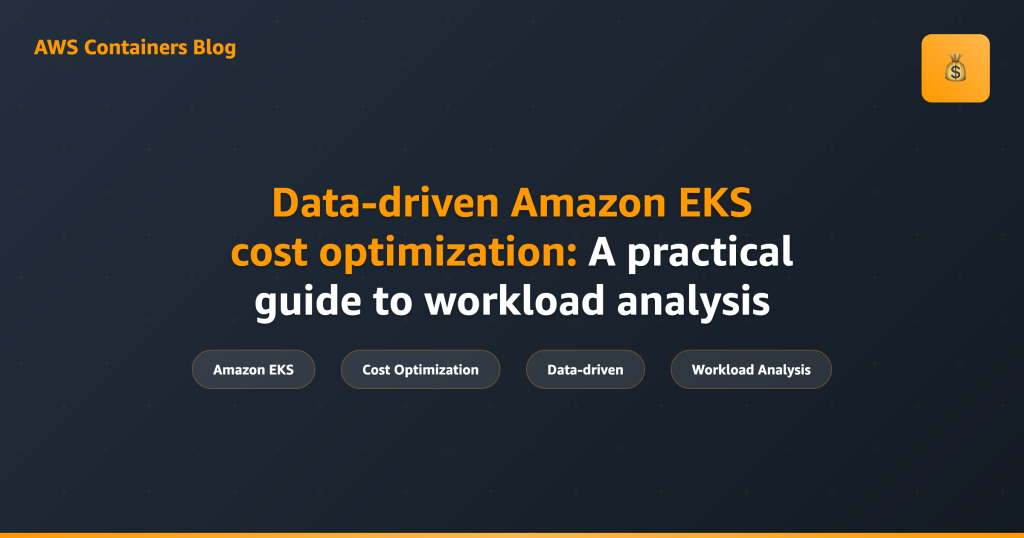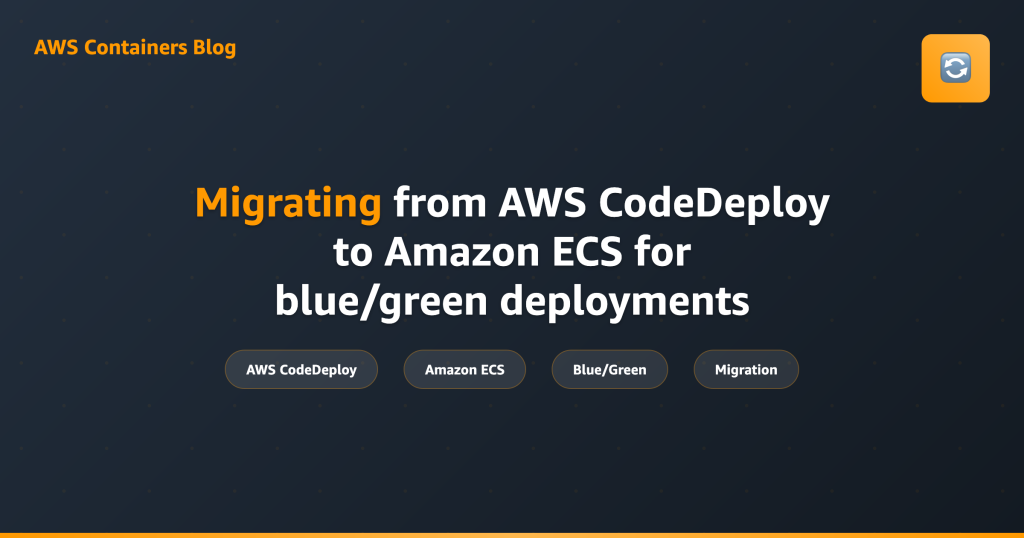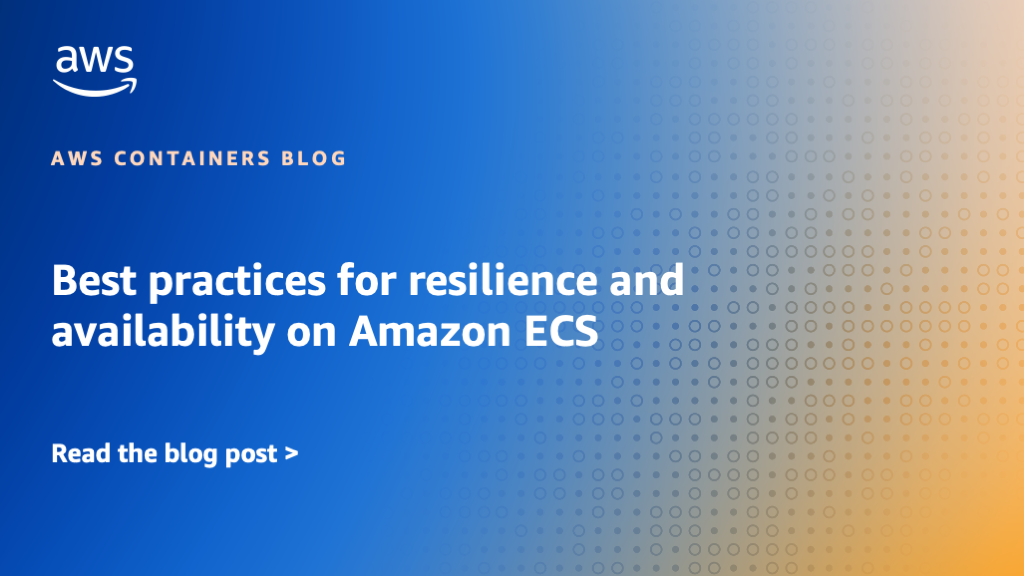Containers
Category: Best Practices
Implementing assurance pipeline for Amazon EKS Platform
This post details how platform engineering teams can build an assurance pipeline for Amazon EKS deployments, incorporating validation frameworks that verify configurations, test infrastructure as code (IaC), assess application resilience, and establish compliance with organizational standards.
Data-driven Amazon EKS cost optimization: A practical guide to workload analysis
In this post, we introduce key considerations for optimizing Amazon EKS costs in production environments through detailed workload analysis and comprehensive monitoring. We demonstrate proven best practices to maximize cost savings while maintaining performance and resilience, supported by real-world examples showing how to eliminate resource waste from overprovisioned pods, excessive replica counts, and fragmented node pools.
SaaS deployment architectures with Amazon EKS
In this post, we explore patterns and practices for building and operating distributed Amazon Elastic Kubernetes Service (Amazon EKS)-based applications effectively. We examine three deployment models – SaaS Provider Hosted, Remote Application Plane, and Hybrid Nodes – each offering distinct advantages for specific use cases as companies scale their software as a service (SaaS) offerings.
Migrating from AWS CodeDeploy to Amazon ECS for blue/green deployments
In this post, we explore the migration path from AWS CodeDeploy to Amazon ECS for blue/green deployments, discussing key architectural differences and implementation considerations. We examine three different migration approaches – in-place update, new service with existing load balancer, and new service with new load balancer – along with their respective trade-offs in terms of complexity, risk, downtime, and cost.
Best practices for resilience and availability on Amazon ECS
In this post, we explore advanced implementation patterns for building highly available services on Amazon ECS, including idempotency, resilience to transient failures, static stability across Availability Zones, deployment safety, and chaos engineering techniques. The post provides detailed guidance on how these patterns can be implemented when deploying applications on Amazon ECS to ensure maximum resilience and availability.
Under the hood: Amazon EKS ultra scale clusters
This post was co-authored by Shyam Jeedigunta, Principal Engineer, Amazon EKS; Apoorva Kulkarni, Sr. Specialist Solutions Architect, Containers and Raghav Tripathi, Sr. Software Dev Manager, Amazon EKS. Today, Amazon Elastic Kubernetes Service (Amazon EKS) announced support for clusters with up to 100,000 nodes. With Amazon EC2’s new generation accelerated computing instance types, this translates to […]
Amazon EKS Pod Identity streamlines cross account access
This post was co-authored by Ashok Srirama, Principal Container Specialist SA and George John, Senior Product Manager EKS. Introduction Today, we’re excited to announce a significant enhancement to Amazon EKS Pod Identity –streamlined cross-account access for Kubernetes applications. This new feature simplifies the process of granting pods permission to access AWS resources in other accounts. […]
Introducing AI on EKS: powering scalable AI workloads with Amazon EKS
This blog post was jointly authored by Vara Bonthu, Principal OSS Specialist Solutions Architect and Omri Shiv, Senior Open Source ML Engineer Introduction We’re excited to announce the launch of AI on EKS: a new open source initiative from Amazon Web Services (AWS) designed to help customers deploy, scale, and optimize artificial intelligence/machine learning (AI/ML) […]
Managing Team Workloads in shared Amazon EKS cluster using Loft vCluster and Argo CD for better cost optimization and operational efficiency
This blog was authored by Adam Issaoui, Cloud Support Engineer – Containers, Asif Khan, Senior Solutions Architect, and Sébastien Allamand, Sr. Solution Architect Specialist – Containers. Introduction Amazon Elastic Kubernetes Service (Amazon EKS) has emerged as a fundamental platform for modern container orchestration. It enables organizations to effectively optimize their application deployment and management processes […]
Analyzing Java applications performance with async-profiler in Amazon EKS
This blog was authored by Sascha Möllering, Principal Specialist Solutions Architect Containers and Yuriy Bezsonov, Senior Partner Solutions Architect. Introduction Container startup performance presents a significant challenge for Java applications running on Kubernetes, particularly during scaling events and recovery scenarios. Although Java remains a top choice for both legacy modernization and new microservices development, especially […]









